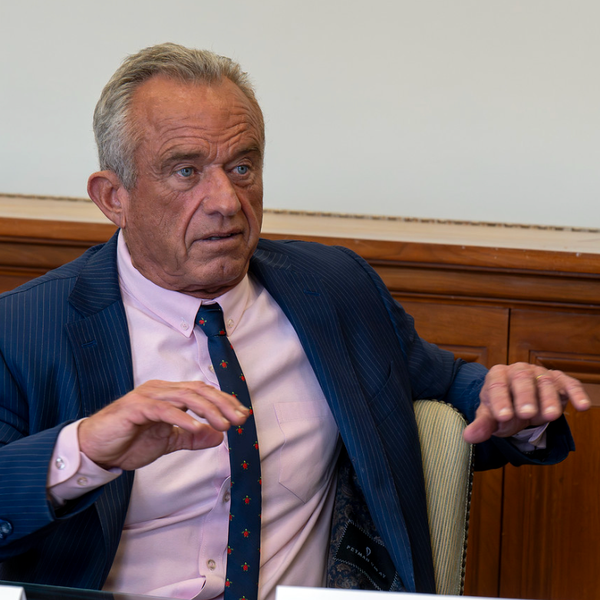How Prison Authorities Hide The 'Unnatural' Causes Of Prisoner Deaths
On August 12, 2017, Sirrena Buie of Birmingham, Alabama talked to her son Kedric. He was incarcerated in a federal prison, United States Penitentiary Atlanta, and called his mother from inside.
The next morning another call came; a prison administrator dialed Sirrena and told her that Kedric had died.
“I'm like, What happened? I just talked to my son. What happened to my child? What happened to my son?” she said she asked the woman who called her that Sunday morning.
To this day it’s not clear what happened to Kedric Buie. The official story, according to his death certificate and autopsy report, is that “hypertension and atherosclerotic cardiovascular disease” snatched 26 year old Kendric Buie’s life.
But those explanations didn’t make sense to his mother. When Sirrena viewed Kedric’s body, she noted a gash on his head as well as swelling so severe that he looked looked like he had gained 100 pounds. Moreover, a note sent to the autopsy provider suggested that Kedric might have overdosed on black tar heroin but the official toxicology report stated that he didn’t have any drugs or alcohol in his system.
Led by his mother, the search for what happened to Kedric Buie has been ongoing since his death. But lawyers bounced her around. Reporters and investigative journalists never prioritized her son's story.
To compound the mystery, a well-known journalist provided Sirenna what purports to be an amended autopsy report that says blunt force trauma killed her son.
That document from the journalist is particularly troublesome because Sirrena Buie was told by people familiar with the situation that her son Kedric was beaten by guards after he balked at a guard allegedly spitting in his food.
So Kedric’s death was either a homicide or a sudden deadly illness. Not knowing which one is unacceptable.
I commenced an investigation into what happened to Kedrick Buie and the results so far are concerning. On May 19, 2021 I filed a simple Freedom of Information Act (FOIA) request for a copy of Kedric Buie’s file within the Bureau of Prisons.
Over a year later, the Bureau of Prisons is either unable or unwilling to furnish a copy of Kedric Buie’s file. The Bureau acknowledged the request on July 6, 2021 and noted that the pandemic had caused processing times to get longer; it might take as long as nine months to provide the records requested, an estimate they later increased to 12 months because of pandemic-induced understaffing. The FOIA unit claims to have sent several requests for the file to the archive holding his file.
I followed up several times and the Bureau of Prisons’ responses bordered on nonsensical. On February 16, 2022, a paralegal explained that Buie’s file is beyond my reach because it hadn’t been received by the office that sent it out. “A search is still being conducted for records responsive to your request. In [particular], the file has not been received by institution who sent into to Archives” the email read.
Vincent Shaw, regional counsel for the Southeast regional office of the Bureau of Prisons, promised to update me on May 10, 2022. He didn’t and he hasn’t responded since, including not returning a request for comment on the matter.
Either Kedric Buie’s file is there in the Bureau of Prisons records or it’s not. And if it’s not, there’s cause for concern because it looks like a potential cover-up.
Covid-19 woke up the public to the reality that people die in prison without an assist from a death warrant. We don’t know exactly how many inmate lives COVID claimed — the Marshall Project and the Associated Press estimate it was about 2715 last June – but the problems with notifying families of prisoners’ health statuses came into full view during the pandemic. Many had no idea that their incarcerated loved ones had contracted the disease, ended up hospitalized or even succumbed to it.
On May 20, Senators John Ossoff (D-GA) and John Kennedy (R-LA) introduced the Family Notification of Death, Injury, or Illness in Custody Act of 2022. Representative Karen Bass (D-CA) introduced an identical bill late last year. If the bill becomes law, it would require federal prison administrators to contact a person’s next of kin within twelve hours (during the day), provide the circumstances of their loved one’s passing and whether an investigation has been opened into the death. The bill’s sponsors hope that it would provide a model for state corrections systems.COVID or not, the bill will get good use if it passes. In 2018, the last year for which data exists, state prisons reported 4,135 deaths (excluding 25 people executed in those facilities). That’s more than 10 per day and it’s the highest number since the Department of Justice’s Bureau of Justice Statistics (BJS) started tabulating mortality data in 2001.
Dividing deaths between natural (illness) and unnatural (suicide, homicide, accident or overdose) the BJS said 77 percent of all prison deaths in 2018 were natural but it might not remain in that proportion for long; the number of unnatural deaths is growing. They were 11 percent of deaths in federal prisons in 2015 and 14 percent in 2018.
Notifying family of inmates’ health status should be dignified and empathetic, so it should be standardized. But this notification bill does more to make people who aren’t incarcerated feel better than it does to protect inmates and make these systems truly transparent. The Buie case demonstrates exactly why formal notification requirements can end up being an end run around real transparency.
An administrator called Sirrena Buie well within 12 hours of her son’s death and therefore preemptively satisfied what lawmakers think is a reasonable expectation for timely communication. And that administrator wasn’t required to tell the grieving mother about any investigation because none had been opened — even though the facts apparent now certainly warrant an inquiry.
Requiring administrators to connect with inmates’ family and friends won’t stop corrections officers from stomping prisoners and raising that number of unnatural inmate deaths even higher — nor from preventing the discovery of what caused these deaths.
Unfortunately, homicide at the hands of correctional staff is a pretty common occurrence. Just last month, the Florida Department of Law Enforcement charged four guards with the murder of an inmate whom they allegedly beat to death. Another was charged in 2021. Those cases were unusual in that investigators identified perpetrators and held them accountable. Authorities held no one responsible for the murder of an inmate who was essentially boiled to death in a shower in 2012.
Kedric Buie’s death may be one of those cases where staff get away with murder even though they notified his family quickly and dishonestly. Without even a general file on his incarceration, it’s still up for grabs who’s going to answer the question of what really happened to him — if that question ever gets a reply at all.









